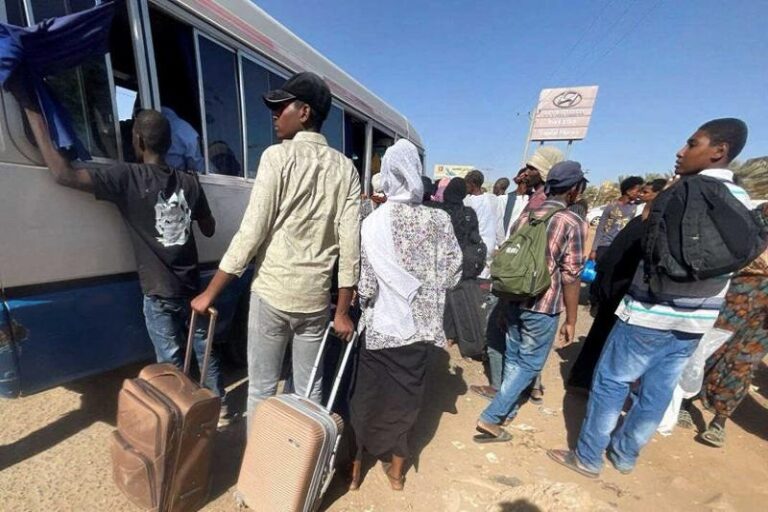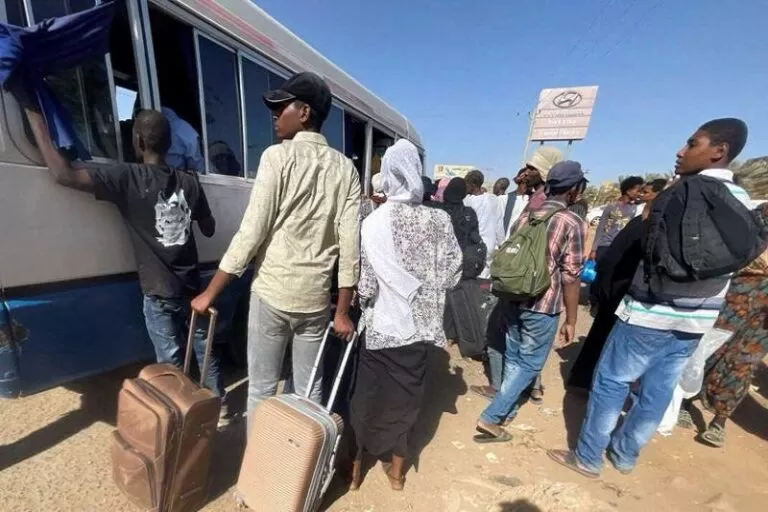

the third sudan ceasefire fails as many people flee
During the fighting on Tuesday, which shattered a fresh three-day truce arranged by the United States and Saudi Arabia, Sudanese and foreigners alike fled the capital city of Khartoum and other war zones in large numbers. Since the fighting between forces loyal to the country’s top two generals began on April 15, millions of Sudanese have been forced to take shelter inside their houses.
As tens of thousands of heavily armed combatants from the military and its adversary, the Rapid Support Forces, fight it out in densely populated residential areas, everyday life has come to a complete halt for the civilian population. The Associated Press was able to obtain video showing the empty streets of Khartoum and smoke rising above the city’s horizon.
Since the beginning of the battle, more than 420 people have been killed, including at least 273 civilians, and more than 3,700 people have been wounded.
Even though it would appear that the military is gaining the upper hand in the combat in Khartoum, the RSF is still in possession of numerous districts in both the capital city of Khartoum and the neighboring city of Omdurman, in addition to many huge strongholds located all over the country.
Since April 15, hostilities between forces loyal to the country’s two senior generals have been ongoing, with only brief lulls in the combat brought about by a series of brief cease-fires that have taken place throughout the previous week. These cease-fires have either been completely unsuccessful or have brought about only sporadic lulls in the fighting. The lulls in the fighting have been sufficient to allow for the dramatic evacuation of hundreds of foreign nationals by air and land, which continued on Tuesday.
But they have not been able to provide any respite to the millions of Sudanese people who have been caught in the crossfire. These people are fighting to obtain food, shelter, and medical care while explosions, gunfire, and looters wreak havoc on their neighborhoods. In a nation with a population of 46 million people, various humanitarian aid organizations have been forced to cease their operations, and dozens of hospitals have been forced to close their doors as a result.
The United Nations High Commissioner for Refugees (UNHCR) has stated that preparations are being made for the possibility of tens of thousands of refugees migrating into neighboring nations. There has been a deafening silence in response to calls for dialogue to bring an end to the crisis in the third-largest nation in Africa.
The departure of diplomats, relief workers, and other foreigners, as well as the closing of embassies, are ominous indicators, in the eyes of many Sudanese, that international powers expect the mayhem to get worse.
The U.S.-based driver training company Zutobi analyzed road safety worldwide and found South Africa stays last in driving danger since…
The Basketball Africa League (BAL) returns for its 2025 season with exciting changes and developments. Since 2019 the NBA-linked basketball…
The Somali president supports their military forces to eliminate the threats from Al-Shabaab, ISIS, and Al-Qaeda. The Somali National Army…
UAE President Sheikh Mohamed bin Zayed Al Nahyan held talks with President Faustin Archange Touadéra of the Central African Republic…
African football teams struggle intensely in the World Cup Qualification rounds to earn their place on the international football stage.…
The journey toward the 2026 FIFA World Cup is rapidly intensifying for all African teams, who now hold a historical…
This website uses cookies.